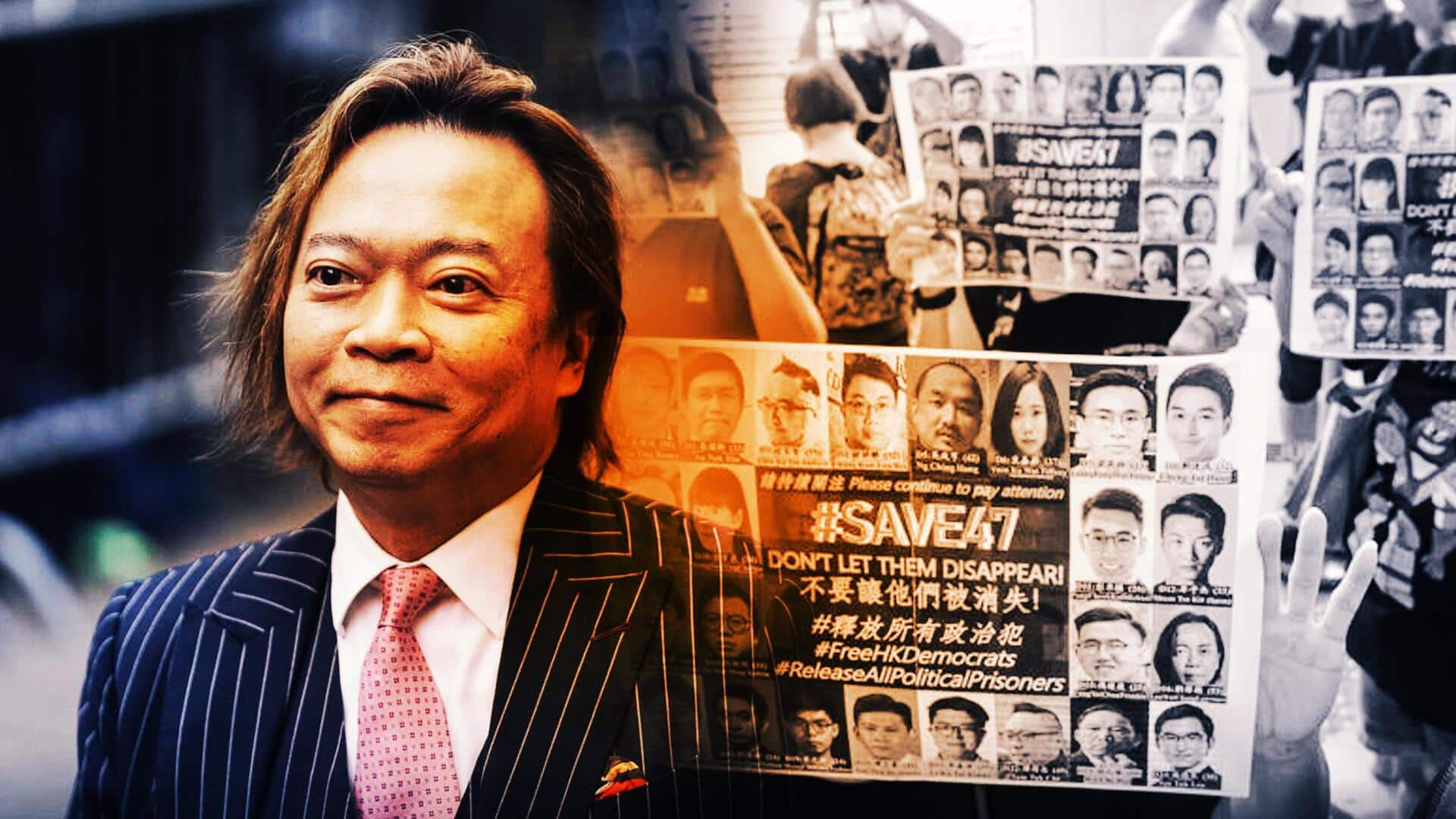
Hong Kong court convicts 14 democracy activists for subversion
What's the story
A Hong Kong court has found 14 of 16 activists and politicians guilty of subversion in the largest trial under the Beijing-imposed national security law (NSL). This group was part of a larger assembly of 47 individuals, including prominent democracy advocates, who were charged over an unofficial primary in 2020. Among those found guilty are former lawmakers Leung Kwok-hung, Lam Cheuk-ting, Helena Wong, and Raymond Chan. They could now face life in jail, with sentencing set for a later date.
Acquittal details
2 activists acquitted
However, two defendants—lawyer Laurence Lau and social worker Lee Yue-shun—were acquitted. This marked the first time individuals have been cleared of such charges since the legislation was enacted nearly four years ago. Ahead of the hearing, observers stated that the subversion case will demonstrate how the security law is being utilized to suppress political opposition. But the Beijing and Hong Kong governments maintain that the law has helped restore calm to the city and that judicial independence is safeguarded.
Case details
Prosecution's claim and judges' agreement on potential crisis
The prosecution argued that the group had planned to use their potential legislative council positions to obstruct Hong Kong's annual budget. This move, they claimed, could have forced the city's top leader to resign and dissolve the legislature. The judges agreed with this argument, stating that such a plan could have led to "political instability leading to a constitutional crisis."
Global reaction
International human rights groups condemn verdict
Following the verdict, Maya Wang, acting China director for Human Rights Watch, stated that the decision showed "utter contempt" in Hong Kong for democratic political processes and rule of law. Similarly, Sarah Brooks, Amnesty International's China Director, described the decision as the "most ruthless illustration yet" that the security law was being "weaponized to silence dissent."
Law overview
Background of the National Security Law and its impact
The national security law was introduced by Beijing following mass anti-government protests in 2019 over plans to allow extradition to mainland China. Pro-democracy candidates, who had won a landslide victory in district council elections that year, aimed to leverage this support for the Legislative Council elections scheduled for September 2020. However, these polls were postponed, and electoral rules were altered to limit directly elected seats and ensure only "patriot" candidates could stand.
Legal developments
Arrests under security law and new domestic bill
Nearly 300 people have been arrested under either the national security law or a colonial-era sedition law. In March, Hong Kong passed a domestic national security bill known as Article 23, claiming it was necessary to "close loopholes." The trial of the convicted activists will now move into its sentencing and mitigation phase, where judges will consider each defendant's circumstances.